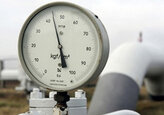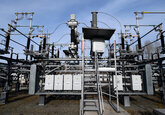
The Parliamentary Commission on Economy, Budget and Finance held hearings on changes in retail prices on the oil products market.
The meeting was held with the participation of representatives of the National Agency for Energy Regulation, the Competition Council and companies participating in the oil products market. According to the information provided by NAER, in the period from December 2020 to January 2021, the average purchase price of petroleum products changed significantly, and the reason for the increase in retail prices in the market was the purchase price and the application of new excise taxes from January 1, 2021. NAER General Director Veaceslav Untila reminded of the changes in the pricing methodology: from March 1, 2019, NAER no longer sets maximum prices for petroleum products, as it did before every two weeks, and now licensed market participants independently set and change retail prices, taking into account the volume of consumption and costs associated with the sale of petroleum products in accordance with the approved standards, including an annual rate of return within 10%. At the same time, the head of the Competition Council Marcel Raducan reported on the market situation. He presented an analytical report on the results of market monitoring over the past 1.5 years. According to him, the analysis of prices at the gas station panel indicates that market operators almost instantly respond to price increases in international markets, while responding with a long delay to price reductions, which creates a mismatch in the market response to changes in international quotations. He also noted the concentration of companies in the oil products market: 6 large companies own 66% of the total number of filling stations in the country, and imports of gasoline and diesel fuel are concentrated in 2-3 participants. In this regard, there are important economic relationships between market participants - transactions for the purchase and sale of oil products on the domestic market. The Competition Council noted an increase in excise taxes on oil products in the context of tax policy for 2021, but noted that the main component of changes in prices for oil products is not an increase in excise taxes, but profit margins. According to the analysis, this indicator among market participants varied from -4% to + 13%. At the same time, the increase in prices made in January 2021, according to the Competition Council, was almost simultaneous, in this regard, in relation to 6 companies, the Competition Council began an investigation to identify possible anti-competitive practices and agreed pricing. To date, 6 checks have been carried out, the collected information is systematized and will soon be made public. During the meeting, representatives of oil-importing companies named other reasons for the increase in fuel prices: an increase in the exchange rate, an increase in the wage bill last year. Herewith, they spoke in favor of ensuring a stable regulatory framework and constructive cooperation between the state and business, based on the realities of the market and the needs of citizens. Following the meeting, it was decided to form a working group to develop a draft law in order to change the situation on the oil products market and improve the competitive environment.// 03.02.2021 — InfoMarket.





